ACM is pleased to present poems from Eve Ewing’s new collection, 1919, published June 11, 2019, to begin our commemoration of the Chicago 1919 race riots and the Red Summer. Starting July 27, 2019, the hundredth anniversary of the riot, we will publish poetry, fiction, nonfiction, interviews, audio/video, art, and drama on the themes of race/riot/rebellion/revolution.
Of course we wish that there was no racial violence to commemorate. Of course we wish that 400 years ago English pirates had not brought enslaved persons to what became our country. Of course we wish that the color-line was not the problem of the 21st century.
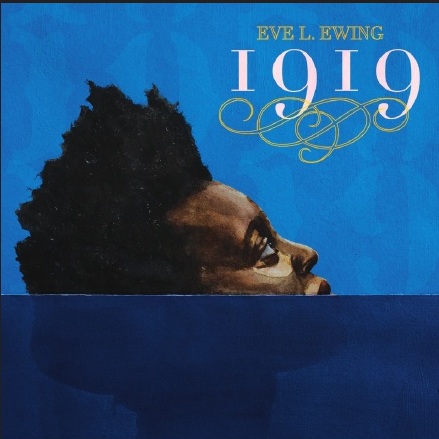
City in a Garden
after Carl Sandburg
The Negro crowd from Twenty-ninth Street got into action, and white men who came in contact with it were beaten. . . Farther to the west, as darkness came on, white gangsters became active. Negroes in white districts suffered severely at their hands. From 9:00 p.m. until 3:00 a.m. twenty-seven Negroes were beaten, seven were stabbed, and four were shot. (5)
o my ugly homestead,
blood-sodden prairie.
urbs in horto. meaning:
if it grows, it once came from dirt
o my love, why do you till the ground with iron?
o my miracle, why do you fire in the dark?
you, thief of dusk, you, captain of my sorrows. you, avarice.
your ground is greedy for our children, and you take them as you please.
the babies come from you, the train car orators, and the beloved hustlers.
they die. and then you send forth more. you, who makes a place
in a middle land. you, ruthless. you, seed ground.
you bear the best of us and the worst in equal measure.
o my garden, which am I?
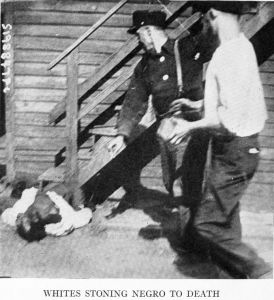
On Sunday, July 27, 1919, there was a clash of white people and Negroes at a bathing-beach in Chicago, which resulted in the drowning of a Negro boy. (xv)
Little Eugene Gene Gene
Sweetest I’ve seen seen seen
His mama told him him
Them white boys mean mean mean
He didn’t listen listen listen
To what mama say say say
Went to the lake lake lake
That July day day day
no, it goes like
Little Eugene W
So sorry to trouble you
Rise, Eugene, rise!
Calm your mama’s cries!
Just sit up and look around,
Don’t let em bury you down
no, it goes like
Down down baby
Down down, the water’s tugging
Sweet sweet baby
Don’t make me let you go
Swallow swallow grab the sky
Swallow swallow dark
Swallow swallow grab the sky
Swallow swallow dark
Grandma Grandma sick in bed
Call on Jesus cause your baby’s
no, it goes like
All dressed in black black black
All dressed in black black black
All dressed in
And he never came back back back
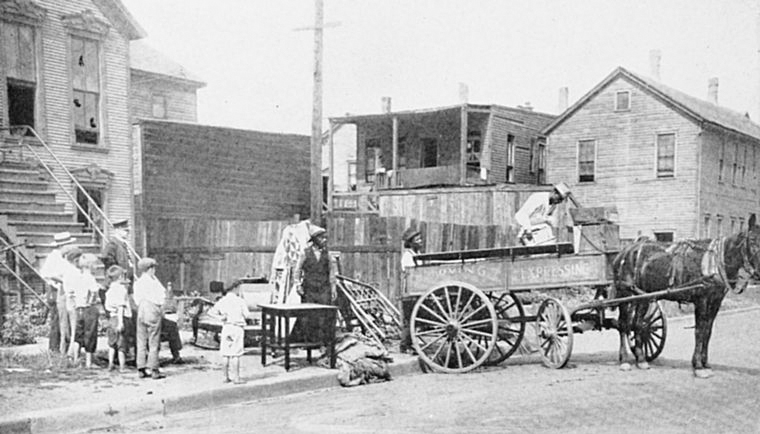
or does it explode
man it was so hot
how hot was it
it was so hot
you could cook an egg
on that big forehead of yours
you a lie
man i tell you it was so hot
how hot
it was so hot
i dropped a tomato in the lake
and made campbell’s soup
nuh uh
it was so hot
the sun tried to get in the swimming pool
and everybody else had to get out
boy that’s hot
who you tellin
that day was so hot
how hot
it was so hot
our dreams laid out on the sidewalk
and said ‘never mind, we good’
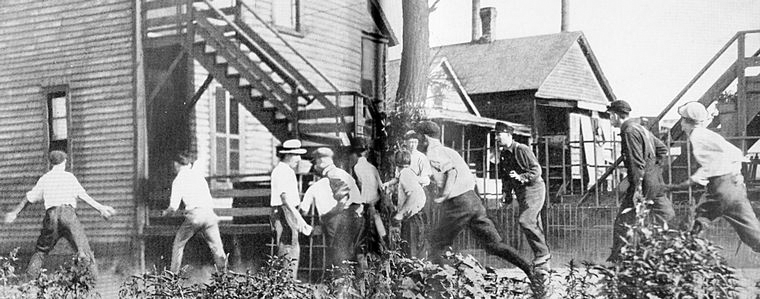
Exodus 10
There is nothing in the make-up of a Negro, physically or mentally, which should induce anyone to welcome him as a neighbor. The best of them are insanitary, insurance companies class them as poor risks, ruin alone follows in their path. (from a 1920 issue of the Property Owners’ Journal, 151)
And the Lord said unto the people,
“Stretch out thy hands toward heaven,
that there may be darkness over the city,
even darkness which may be felt.”
And the people stretched forth their hands,
and there was a thick darkness in all the city:
it weighed heavy on the heads of saint
and sinner alike. And the people smiled upon the darkness,
and the darkness was good. For upon them the darkness
was as burnt sugar: pleasing to the skin, and sweet upon the lips.
And the people delighted in the darkness.
But upon the wicked, the darkness was as a plague,
and beneath it they writhed in torment, weeping and calling for mercy.
The thickness of the darkness was such that they saw not one another,
neither rose any from their place for days. And the people found leisure,
calling to one another through the darkness as in a child’s game,
and they found each other in laughter. And to them, all noise was joyful
in the darkness, so that each found the work of the Lord
in the song of the sparrow or the sigh of a sleeping infant. And it was good.
But the wicked people were slothful, and found only misery in their repose.
And the kings, their hearts hardened, called unto the people, and said,
“Go! Get thee from us! Take heed to thyselves, and leave the city.”
But the people stood in the darkness, and each reached with a staff
toward heaven, and they spoke as one, saying then “Nay,
for the Lord our God is with us, and the city is granted unto us,
and it shall be a city of darkness for all days to come.”
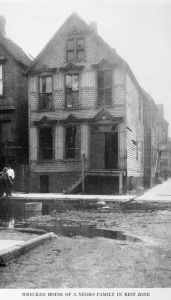

Dr. Eve L. Ewing is a sociologist of education and a writer from Chicago. She is the author of Ghosts in the Schoolyard: Racism and School Closings on Chicago’s South Side. She is also author of Electric Arches, which received awards from the American Library Association and the Poetry Society of America and was named one of the year’s best books by NPR and The Chicago Tribune. She is the co-author (with Nate Marshall of the play No Blue Memories: The Life of Gwendolyn Brooks. She also writes the Ironheart series for Marvel Comics. Ewing is an assistant professor at the University of Chicago School of Social Service Administration. Her work has been published in The New Yorker, The Atlantic, The New York Times, and many other venues. Read the ACM interview with her here.